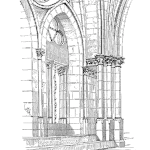
Fundamentals of Reliability-Related Standards
podcast episode
Standards provide guidance, a common language, and a bit of confusion. Using the right standard and using it well can help your reliability program. Using standards poorly will harm your ability to create reliable products.
Let’s consider the good, the bad, and the total fails of industry standards. Some provide useful information. While a few common ones should be avoided. There is a wide range of sources of standards for different industries and applications. Some standards provide detailed procedures, while others outline approaches. In general, standards provide a common way for organizations to talk to each other and conduct business.
Many standards do not provide background or boundaries on under what circumstances the standard applies. This leads to the misapplication of standards and misleading results. Some standards provide little more than that found in an engineering or statistical textbook at much more cost. Yet others provide details not found elsewhere.
Let’s discuss standards, including where to find them, how to use them, and a few stories about how standards use leads to reliability problems.
This Accendo Reliability webinar originally broadcast on 11 December 2018.

To view the recorded video/audio of the event visit the webinar page.
Related Content
Industry Standards Explained with Leo Lambert episode
Where are FMEAs (and their standards) Heading? episode
Reliability Prediction Standards episode
Thoughts on ISO Standards episode
Why Look to Standards episode

Fundamentals of Reliability Related Standards
Using the right standard well can help your reliability program. Using standards poorly will harm your ability to create reliable products.

Interpreting Standard Testing Results
I have yet to find a standard test procedure that details what specific materials and failure mechanisms the test is applicable to.

ISO 42001 — 10X Bigger Than ISO 9001
ISO 42001 is the new (FDIS) management system standard. Learn how to reposition your work/career/job for this new opportunity.

 Ask a question or send along a comment.
Please login to view and use the contact form.
Ask a question or send along a comment.
Please login to view and use the contact form.
What was that piece of music at the beginning? Cute oboe part. I am an oboist.
Did you include IEC 60601-1 “Medical electronic devices…” in discussion of reliability standards? It includes risk-based inspection time formula that is wrong. http://www.asqrd.org/wp-content/uploads/2018/10/ASQ-RRD-Newsletter_Sept-2018-Update.pdf page 12
Hi Larry,
The music is by Soni Ventorum Wind Quintet performing Franz Danzi: Wind Quintet Opus 67, Nos. 2-3
I suppose if you look hard enough at most any standard there are errors, hence the five year cycle of review and editing.
Cheers,
Fred